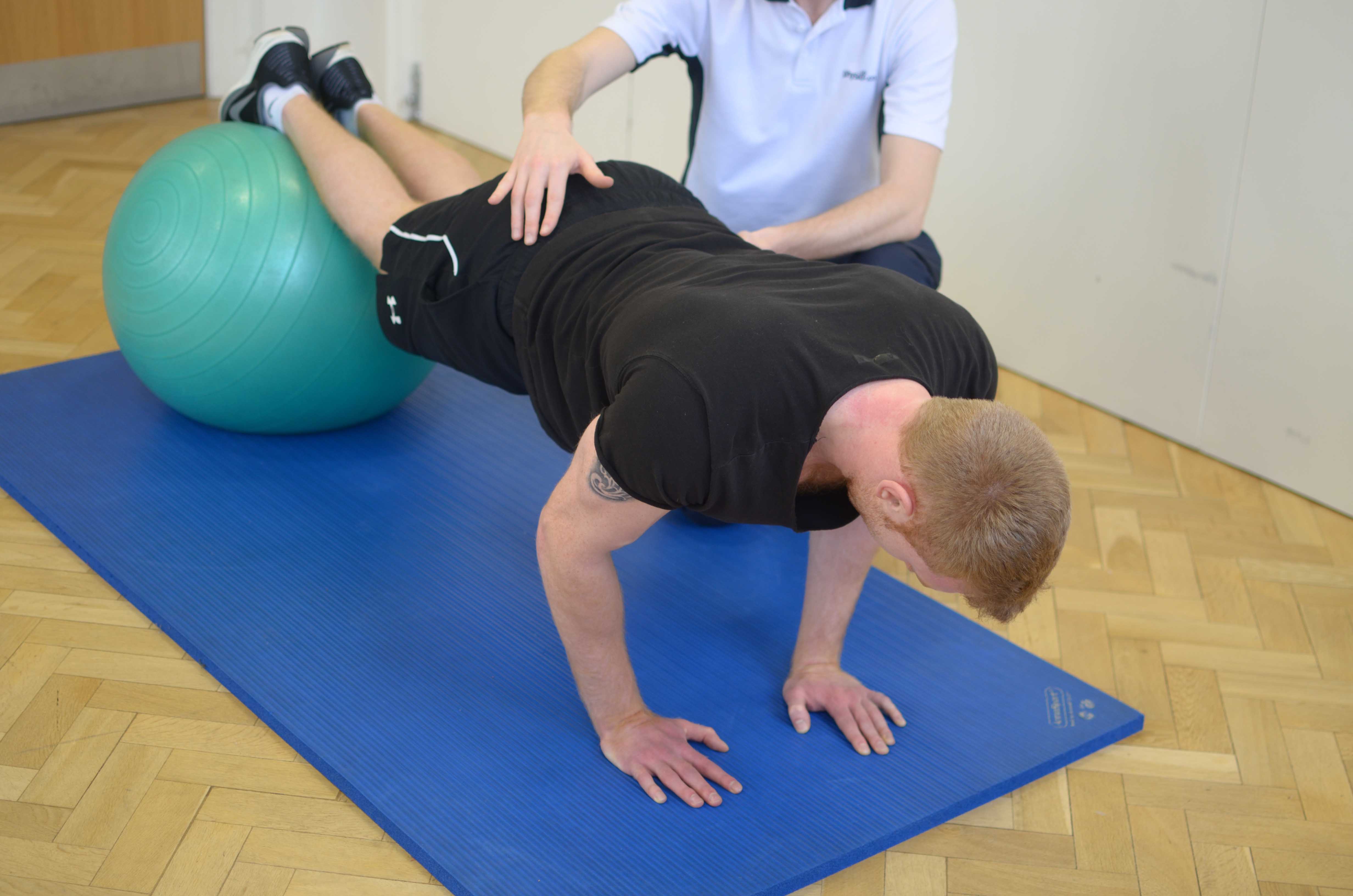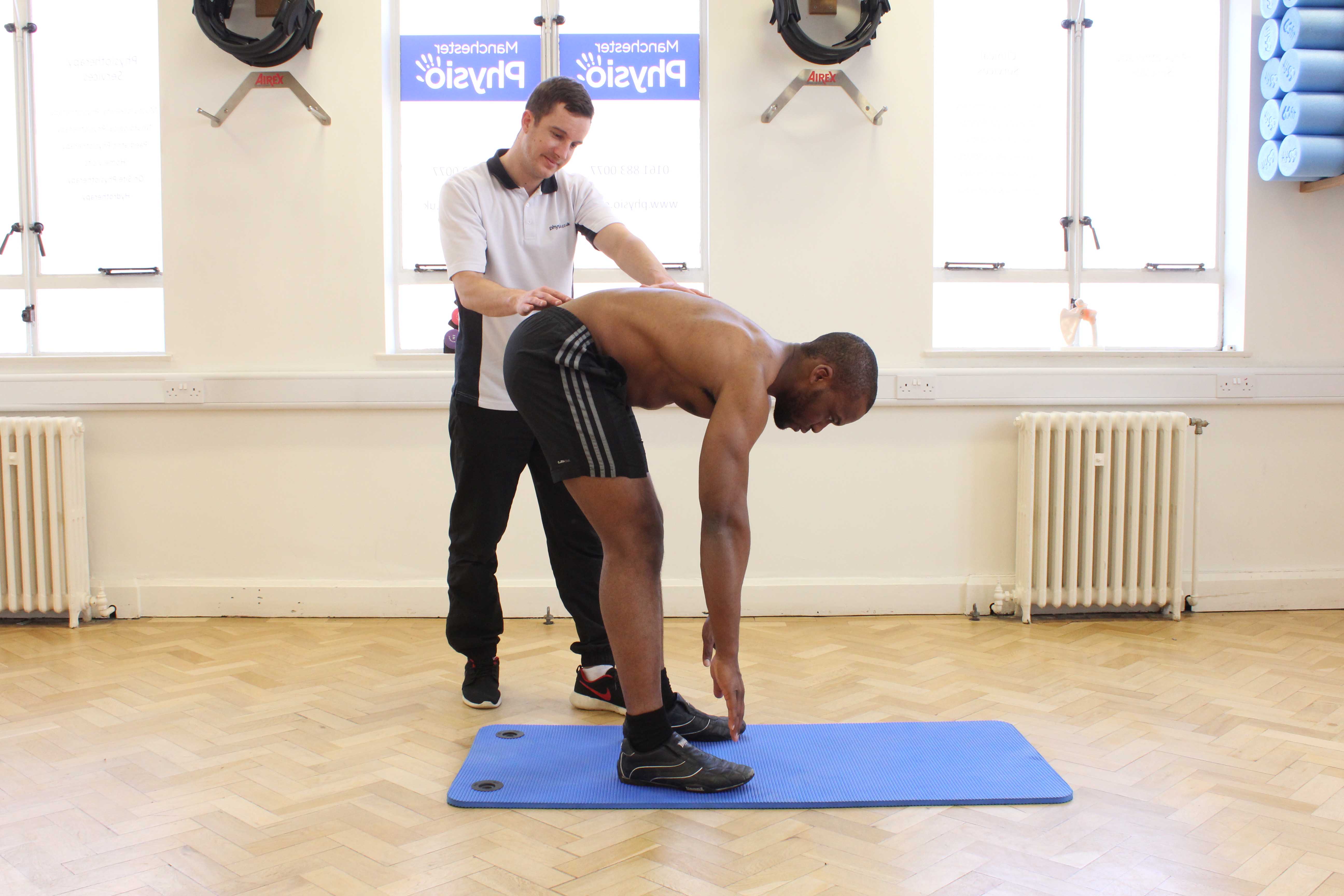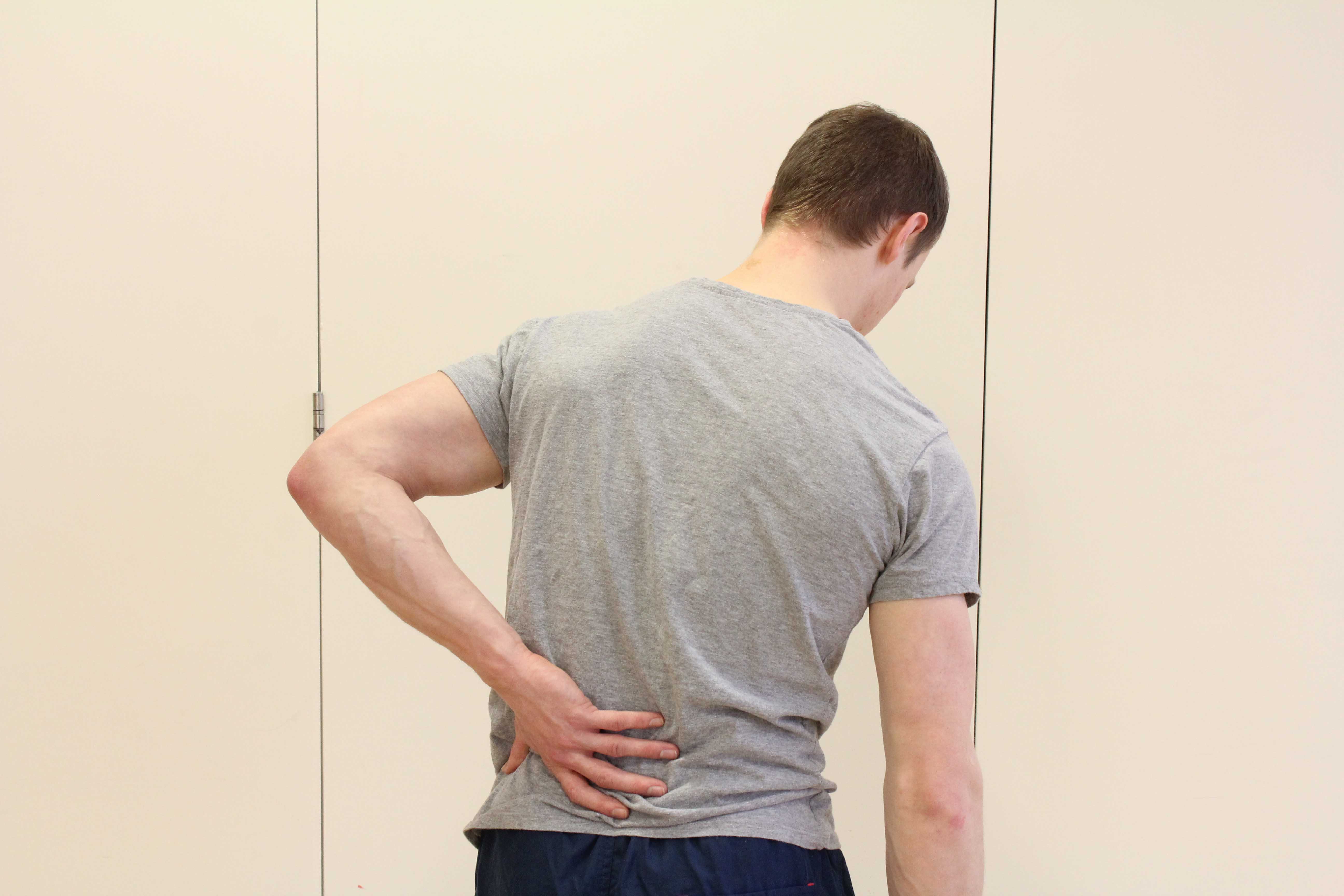Lumbar fusion
A lumbar fusion is a surgical procedure performed to fuse the vertebrae (bones in your spine) together in order to:
- Reduce pain in the lower back, buttocks or legs
- Decrease numbness and tingling in the buttocks or legs
- Reduce weakness in the paraspinal and abdominal muscles
- Increase stability and prevent abnormal motion in the spine.
- Restore functional ability with everyday tasks
 Above: Mobilisation and strengthening exercises for the lower back
Above: Mobilisation and strengthening exercises for the lower backA lumbar fusion is used to treat conditions such as:
- Spondylolisthesis (when a vertebra moves forward in relation to the one below)
- Scoliosis (curvature of the spine)
- Fractures
- Degenerative disc disease
- Weak or unstable spine caused by infections or tumours
 Above: Rehabilitation following lower back vertebral fusion
Above: Rehabilitation following lower back vertebral fusionPhysiotherapy before a lumbar fusion
Physiotherapy will help prepare your back before your surgery and aid your recovery. Physiotherapy will also advise you on how to manage your current symptoms as well as what to expect following your operation. Treatments offered may include:
- Ice and Heat therapy
- Gentle range of movement exercises
- Stretching exercises
- Advice on surgery and post-surgical management
Symptoms following a lumbar fusion
You will experience some pain following your surgery but this will be well controlled with medication. The first day after your surgery you will be seen by the physiotherapist who will show you how to get of bed and mobilise safely and effectively. Prior to discharge you need to be as independent when mobilising and going up and down stairs safely. Before leaving the hospital, your physiotherapist may outline ways for you to help control symptoms once you get home.
 Above: Lower back pain derived from structural and connective tissue misalignment
Above: Lower back pain derived from structural and connective tissue misalignmentPhysiotherapy following a lumbar fusion
Physiotherapy treatment following your surgery will reduce your pain and facilitate the return of functional movement and strength, enabling you to walk, sit, drive a car, and manageday to day and recreational activities.
Physiotherapy treatment will help you make significant improvements and maximise the benefits of your surgery.
Physiotherapy treatment at Physio.co.uk will help:
- Teach you ways to self manage your condition and control symptoms
- Increase muscle strength and improve flexibility
- Teach you the correct posture and body movements to protect
- Return to work safely
- Return to the activities important to you
1-2 weeks
An initial assessment with your physiotherapist at Physio.co.uk will determine how your current symptoms affect your day to day living and treatment programme will be developed tailored to your needs to increase safety and reduce discomfort. Physiotherapy may include:
- Ice and Heat - Ice helps control inflammation, muscle spasm, and pain. Heat increases blood flow to the affected area bringing nutrients and reducing chemicals that cause pain.
- Advice about positioning – to increase comfort and take pressure off the affected area by supporting your spine in lying and sitting.
- Advice about careful movements – will reduce pain and improve your confidence.
2-6 weeks
During this stage of your rehabilitation, physiotherapy treatment at Physio.co.uk will continue to promote your recovery from surgery by starting to improve ways to strengthen your spine and increase range of movement. At this stage a progressive exercise program will be introduced to help maximize your range of movement, stabilisation, coordination, and fitness conditioning. Physiotherapy treatment may include:
- Active range of movement exercises to strengthen the muscles in your back
- Soft tissue massage to reducespasm by helping muscles relax
- Stretching soft tissue to improve length.
- Graded joint mobilisation to help bricate joint surfaces, easing stiffness and reducing pain.
- Fitness conditioning such as walking, swimming and stationary cycling to improve general fitness
- Ergonomic assessment to assist the way you move at home or at work and preventing further problems.
6-12 weeks
Your physiotherapist at this stage of your recovery will progress your exercises making them functional and task specific so that you continue to make significant improvements. Physiotherapy treatment will consist of:
- Activating the "core" muscles to help stabilise the lower spine. These key muscles are trained to help you position your spine safely and to hold your spine steady as you perform routine activities.
- Exercises to strengthen the spinal muscles to control safe movement and help reduce the chance of re-injury.
- Functional training when you need help doing specific activities.
12 + weeks
At this stage of your recovery you will see improvements in your range of movement and strength compared to the preoperative stage. Physiotherapy treatment at this stage will continue to maximise your movement strength and fitness. Treatment will include:
- Improved confidence with movement during every day and sporting activities
- Strengthening exercises through range
- Functional training
Call Physio.co.uk now on 0330 088 7800 for more information or to book an appointment please contact us.

 0330 088 7800
0330 088 7800

































